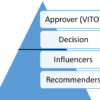Striking the right balance between fear and trust is paramount. While fear may occasionally drive short-term results, it’s trust that ultimately fosters long-term success, loyalty, and high-performance teams. As someone who thrives under a trusted sales leader, I’ve witnessed firsthand the transformative power of trust in driving sales success. In this blog, we’ll delve into why trust is essential for sales leaders, the role of fear, and how finding the right balance can propel teams to new heights.
The Vital Role of Trust in Sales Leadership
Trust is the linchpin that holds teams together and drives performance. Sales leaders who inspire trust create an environment where team members feel valued, supported, and empowered to succeed. Trust fosters open communication, collaboration, and a shared sense of purpose, laying the foundation for long-term success and growth.
Pros of Trustworthy Sales Leaders:
- Increased Sales Performance: When sales team members trust their leader, they are more engaged, motivated, and committed to achieving their goals, leading to higher levels of sales performance and success.
- Stronger Team Cohesion: Trustworthy sales leaders foster a culture of teamwork and collaboration, where team members support and rely on each other to achieve collective success.
- Enhanced Customer Relationships: Trustworthy sales leaders build strong relationships with clients based on honesty, integrity, and reliability, leading to increased customer loyalty and retention.
- Improved Employee Retention: Employees are more likely to stay with an organization when they trust their sales leader, reducing turnover and associated costs.
- Positive Organizational Culture: Trustworthy sales leaders set the tone for a positive organizational culture, where transparency, integrity, and accountability are valued and practiced at all levels.
The Role of Fear in Sales Leadership
While trust is essential, fear can also have its place in sales leadership. A healthy dose of fear can motivate team members to push themselves beyond their comfort zones, strive for excellence, and achieve their full potential. However, when fear becomes the primary driver of behavior, it can erode trust, morale, and performance.
Pros of Fear in Sales Leadership:
- Motivation: Fear can motivate sales team members to set ambitious goals, take calculated risks, and pursue excellence in their work.
- Accountability: Fear of failure can hold team members accountable for their actions and drive them to meet or exceed expectations.
- Focus and Discipline: Fear can instill a sense of urgency, focus, and discipline in sales team members, helping them prioritize tasks and stay on track to achieve their goals.
Cons of Fear in Sales Leadership:
- Erosion of Trust: When fear is used as a primary motivator, it can erode trust and create a culture of fear and intimidation, where team members feel undervalued and unsupported.
- Burnout and Stress: Excessive fear and pressure can lead to burnout, stress, and mental health issues among sales team members, negatively impacting their performance and well-being.
- Limited Innovation and Creativity: Fear can stifle innovation and creativity, as team members may be reluctant to take risks or think outside the box for fear of reprisal.
Finding the Balance: Trust, Fear, and Sales Leadership
As a sales leader, finding the right balance between trust and fear is crucial. While fear may have its place in motivating teams to achieve short-term results, it’s trust that ultimately drives long-term success, loyalty, and high-performance teams. By prioritizing trust, transparency, and open communication, sales leaders can create a culture where team members feel valued, supported, and empowered to succeed.
Conclusion
In the world of sales leadership, trust reigns supreme. Sales leaders who inspire trust foster a positive work environment where team members feel valued, supported, and empowered to succeed. While fear may have its place in motivating teams to achieve short-term results, it’s trust that ultimately drives long-term success, loyalty, and high-performance teams. By finding the right balance between trust and fear, sales leaders can create a culture of accountability, innovation, and excellence where everyone can thrive.












